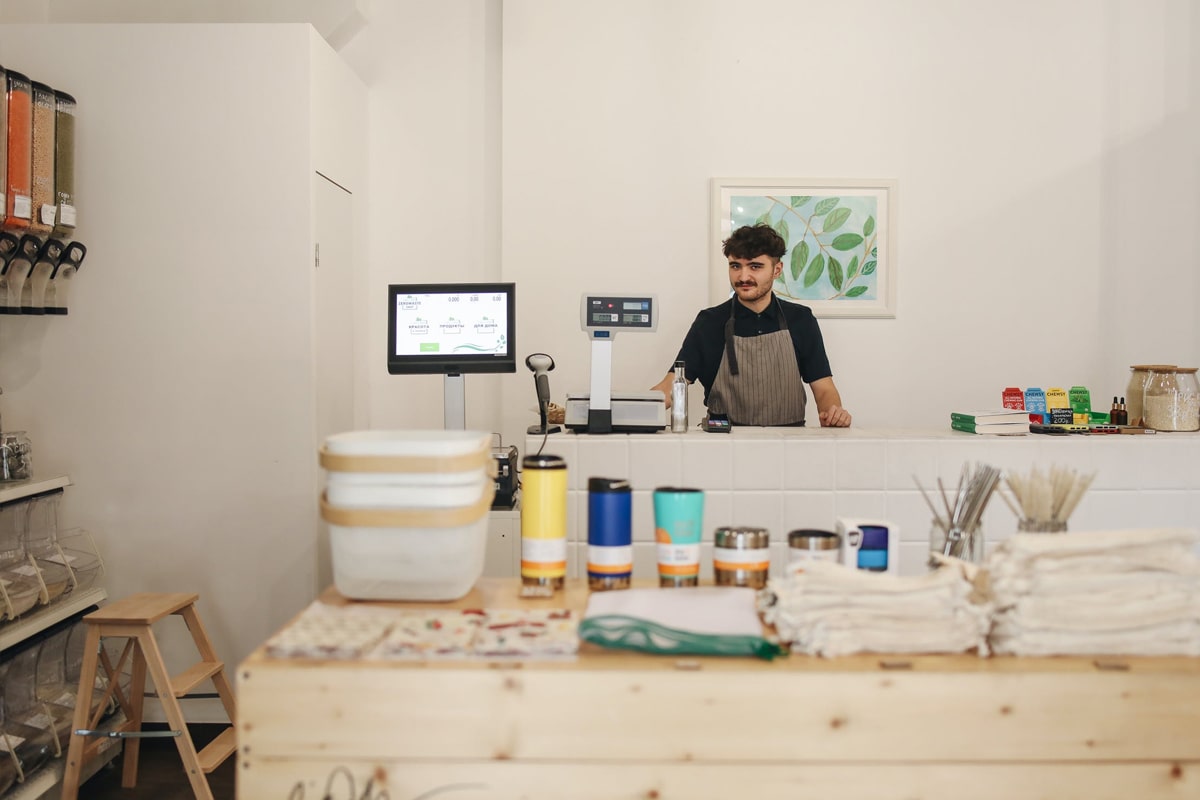- Try “Meatless Mondays” or go plant-based one meal a day.
- Explore hearty plant proteins like lentils, beans, tofu, or tempeh.
- Get creative with veggies — roasted, grilled, blended, or stir-fried.
- Shop at your local farmer’s market.
- Learn what’s in season in your area.
- Join a CSA (Community Supported Agriculture) program.
- Plan meals and use a shopping list to reduce food waste.
- Store food properly to extend freshness.
- Get creative with leftovers and scraps (like making broth from veggie peels).
- Replace beef with lower-impact meats like chicken or plant proteins.
- Choose dairy alternatives like oat milk, almond milk (in moderation), or soy milk.
- Use meat as a flavor enhancer, not the main event.
- Look for eco-labels like MSC (Marine Stewardship Council).
- Eat lower on the marine food chain (e.g., sardines, mussels, anchovies).
- Avoid overfished species and check sustainability guides like Seafood Watch.
- Cook more meals from scratch.
- Choose whole foods with minimal packaging.
- Buy in bulk using reusable containers when possible.
- Buy organic when possible, especially for high-pesticide crops.
- Seek out labels like Certified Organic, Regenerative Organic, or Fair Trade.
- Support farmers and brands committed to soil and ecosystem health.
- Slow down during meals and savor your food.
- Portion appropriately and avoid over-buying.
- Think about where your food came from and the impact it has.
- Grow herbs on a windowsill or balcony.
- Try container gardening with tomatoes, lettuce, or peppers.
- Compost kitchen scraps to nourish your soil.
- Choose brands with transparent sustainability practices.
- Advocate for food policies that support climate action and fair agriculture.
- Vote with your dollar — and your ballot.
Sustainable eating isn’t just a trendy buzzword — it’s a meaningful way to reduce your environmental impact, support ethical food systems, and improve your overall health. The good news? You don’t have to overhaul your entire diet or go 100% plant-based to make a difference. Even small, intentional changes can have a lasting positive effect on the planet.
In this guide, we’ll walk you through 10 simple, practical ways to make your diet more eco-friendly, without sacrificing enjoyment, variety, or convenience.
10 Tips for Sustainable Eating

Make your diet more eco-friendly without sacrificing flavor or nutrition. Here are ten simple ways for sustainable eating that can benefit your health and the planet.
1. Eat More Plants
The production of plant-based foods generally requires far fewer resources — like water, land, and energy — than animal-based products. Shifting even part of your diet toward plants can make a big environmental impact.
How to Start:
Why it matters: Animal agriculture is a leading source of greenhouse gas emissions, especially beef and lamb.
2. Buy Local and Seasonal Produce
Local, in-season food requires less energy to transport and store. It’s often fresher, tastier, and more nutrient-dense.
How to Start:
Why it matters: Reducing food miles (how far food travels to reach you) cuts emissions and supports regional farming economies.
3. Reduce Food Waste
About one-third of all food produced globally is wasted. That’s not just a waste of food — it’s also a waste of water, land, labor, and emissions used to produce it.
How to Start:
Why it matters: Wasted food ends up in landfills, producing methane — a potent greenhouse gas.
4. Cut Back on Red Meat and Dairy
Beef, lamb, and dairy have some of the highest environmental footprints in the food system, especially in terms of methane emissions and land use.
How to Start:
Why it matters: A diet with less red meat and dairy significantly reduces greenhouse gas emissions and deforestation.
5. Choose Sustainable Seafood
Overfishing and harmful fishing practices are major threats to ocean ecosystems. But seafood can still be part of a sustainable diet — if you choose wisely.
How to Start:
Why it matters: Responsible seafood choices help protect marine biodiversity and food security.
6. Limit Processed and Packaged Foods
Highly processed foods are often resource-intensive and come with excess packaging, most of which ends up in landfills or oceans.
How to Start:
Why it matters: Reducing demand for ultra-processed foods supports healthier food systems and reduces plastic waste.
7. Support Regenerative and Organic Agriculture
Organic and regenerative farms use techniques that enhance soil health, biodiversity, and carbon capture — all crucial for a sustainable future.
How to Start:
Why it matters: Healthy soil stores more carbon and reduces runoff, erosion, and pollution.
8. Eat Mindfully and Intentionally
Sustainable eating isn’t just about what you eat — it’s also how. Eating with awareness can reduce overeating, food waste, and reliance on convenience foods.
How to Start:
Why it matters: Mindful eating promotes gratitude, waste reduction, and better food choices.
9. Grow Your Own Food (Even a Little)
Home gardening, even on a small scale, can deepen your connection to food and reduce reliance on store-bought items that require packaging and transport.
How to Start:
Why it matters: Growing your own food cuts emissions and gives you total control over what goes into your produce.
10. Support Sustainable Food Policies and Brands
Individual choices matter, but collective action drives broader change. Supporting companies and policies that prioritize sustainability helps shift the system at scale.
How to Start:
Why it matters: Supporting sustainable systems builds a better future for everyone, from farmers to consumers to future generations.
Make Your Diet More Eco-Friendly

Sustainable eating isn’t about being perfect — it’s about being intentional. Whether you’re reducing meat, shopping local, or cutting food waste, every step adds up. Start where you are, make one change at a time, and remember: small actions lead to big impact when millions of people take them together.
By choosing a more eco-friendly diet that aligns with your values and lifestyle, you’re not just nourishing your body — you’re helping to nourish the planet, too.





